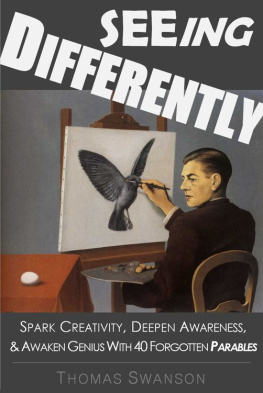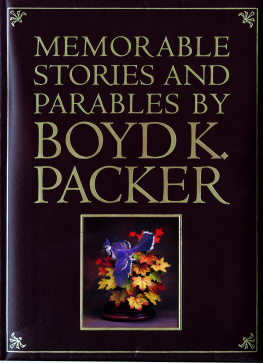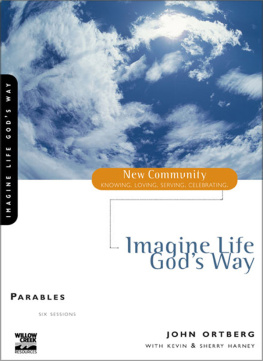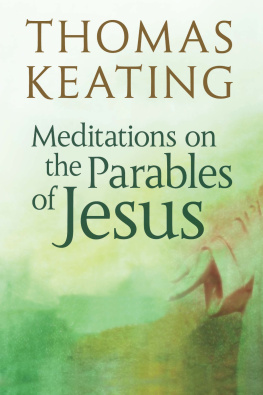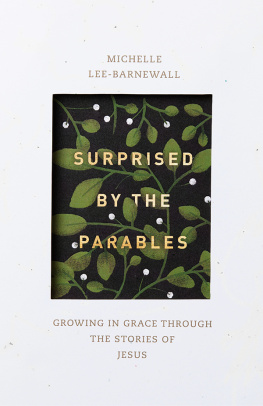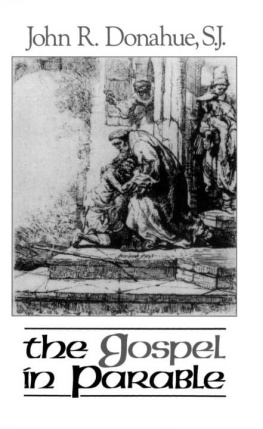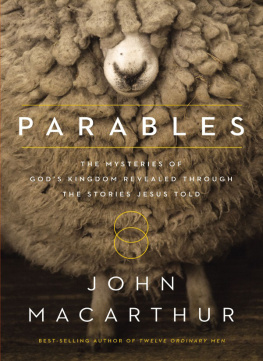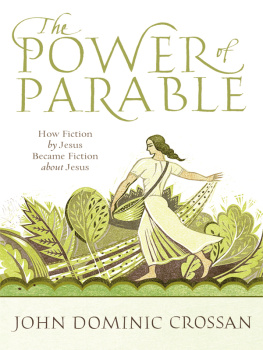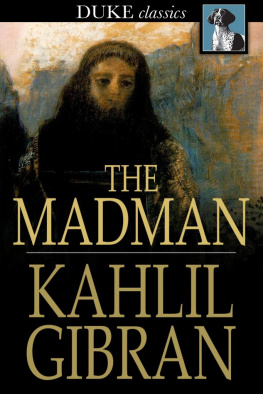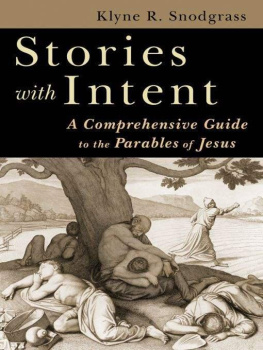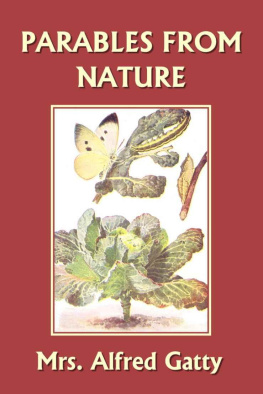Seeing Differently:
Spark Creativity, Deepen Awareness, & Awaken Genius With 40 Forgotten Parables
by Thomas Swanson
Digital Edition
Copyright 2013 Solicitor Publishing
All Rights Reserved
40 Parables
#9: The Five Boons of Life
13
For each hearts depth which
waits silently, expectantly
atop the mountain
Welcome
I welcome you to this collection of perplexing, provocative, and profound stories we call parables.
Parables are an extremely overlooked source of knowledge, wisdom, challenge, occupation, and mental and spiritual food in todays society. Most ancient cultures have a tradition of parables, or parable-like literature. These were to pas knowledge and wisdom, and maturity from one generation to the next. For the ancients know as you also know, that mere information is not enough for what we all want to do and to become. Just as food is not enough for sustenancerather, one must also chew it, and absorb it into ones being. Our society has tons and tons of food sitting on plates, in refrigerators, and at the store. But few eat this food. Most glance, look, and admire this food. But few eat this food.
This collection is for you to eat, not merely admire. I predict that by truly attempting to absorb and digest these parables into your heart and mind, you will think new thoughts, hear new things, and see in a different way.
I will leave you with a few brief thoughts on parables, since you may be somewhat unfamiliar.
The major difference between parables and short stories is that parables have a hiddenness to them. They need to be plumbed, pondered, unraveled. Your mind, or third eye, will be exercisedand may become somewhat sore, like a muscle! But go at a comfortable pace. Of course short stories require this too, but short stories have a higher emphasis on aesthetic development, character, and descriptivity. They tend to be more visual, whereas parables tend to be more mental or spiritual or of the heart.
The major difference between parables and other kinds of merely mental challenges is that parables do not seem to have a single, correct answer as there is in intellectual games such as riddles, Sudoku, or crosswords. For some people, this is exactly what they are looking for in a mind gamesomething clear, definite, that gives closure and offers a break from the complexities and ambiguities of daily life. However, if this desire for clarity and definitiveness describes you I think you might be pleasantly surprised by how much you enjoy parables.
Parables are designed to fit in your mind; everything needed to understand a parable is contained within the parable. The parable is a small world unto itself, which is intended to be bite-sized or, rather, mind-sized.
There are a range of kinds and styles of parables presented here. But unlike some kinds of parables, there is no background knowledge needed. Each parable stands alone, and, with sufficient, relaxed spiritual and mental chewing, you should be able to get them well enough for your own point in your life. Though, of course, they may come back to you in the future as your experience grows, and youll gain new insight into the lessons, stories, ideas, or interesting observations youll find here.
I wish you well!
Thomas Swanson
#1: A Fool's Foresight
Two fools went to a casino to gamble. Only the first fool had any money, so he sat down to play a simple game based on betting on a single dice.
For the first round, he bet on a 4, but the dice came up with a 2. The second fool shouted to him: "You fool! You clearly should have bet on a 2!"
For the second round, the first fool bet on a 5, but the dice came up 6. "You fool! You clearly should have bet on a 6!" yelled the second fool.
For the third round, the first fool bet again, this time on a 1, but the dice came up 5. The second fool again chided him, "You fool! You clearly should have bet on a 5!"
Having now run out of money and full of disappointment and regret, the first fool said to the second fool: "Darn! If only I had listened to your advice, we would be rich!"
#2: The Old Sign
There was once a young boy walking in Greece who stumbled upon a large stone set upright and marked with what looked to be an ancient inscription. When he returned home, he told his father about it who in turn told a famous archaeologist he knew. The archaeologist got some tools and equipment together and asked the boy to take him to the stone.
It was a remote location, but after a difficult hike through some rocky and mountainous terrain, they finally arrived at the stone. The archaeologist took one look and was elated. He recognized the script immediately as a rare ancient form of Greek he happened to be the world expert on. Any new example of this writing would be very helpful for his own studies and for his archaeological field as a whole.
The archaeologist got to work scraping off layers of dust and moss that had grown on the stone. After he finally got the stone cleaned off, he saw that the writing was very large, and contained only a few words. He got to work trying to interpret the writing. He pulled out his notes and pictures of other examples of the writing, and ancient Greek dictionaries and grammatical studies. He burst out with excitement several times during the several hour effort and finally told the boy, waiting by, what the writing meant:
"The inscription says, 'Warning to All Who Pass By: Tread Carefully and Lightly, for the Ground is Unstable'. Do you know with this means, my boy? You wouldn't understand it all, but this ancient warning sign will help to close many gaps in our understanding of this ancient Greek culture and language. Thank you so much for your discovery. I can't wait to get my whole team up here and do more excavation."
So the boy and the archaeologist returned to their homes.
The archaeologist spent the next week assembling his excavation team, and when they finally were ready they flew the fragile and large equipment to the site with a helicopter and took the rest of the basic supplies by a train of donkeys. The helicopter landed with the archaeologist and soon the donkeys began to arrive carrying their loads.
The archaeologist stood and surveyed his teams, equipment, and the gradually assembling supplies arriving on the donkeys. He took a look at the ancient warning sign and smiled at all he hoped to accomplish through his excavation project. But just then, the ground began to tremble. The donkeys started to act strange. Deep noises could be heard under the ground, and in an instant the whole surface of the ground they were standing on gave way, and all the team and equipment and donkeys and the archaeologist fell down to their sad death and destruction.
#3: The Miracle
Out in the Garden bloomed a Cherry tree, only one of the hundreds of trees, only one in the almost endless varieties. Yet to itself it was the center of the Gardener's care and love. Up in the topmost branch was a cherry, to all observers, like the other hundreds of cherries on the trees aflame with the redness of maturity. Yet to itself, one different from all others, one meant surely for greater purposes than the others.
And so it seemed. Birds of the air found in the fruit that grew beyond the reach of human hands, the satisfaction of their daily needs, and one by one the other cherries found their mission in supplying these needs. Yet the one cherry remained, reassuring himself, "I shall meet some wondrous experience beyond the possibilities of commoner fruit!" Daily he waited for the transforming miracle which came not.
The perfection of its ripeness passed; the very birds ceased to visit the tree, and one day, the cherry came to the realization that he had become dry, old, and useless. Better far to have satisfied the hunger of birds than this loneliness. Its miracle seemed in the length of this life on the treeyet was it life now, when all the plump redness had vanished, leaving only the stone which had been the heart of the perfect fruit?
Next page
